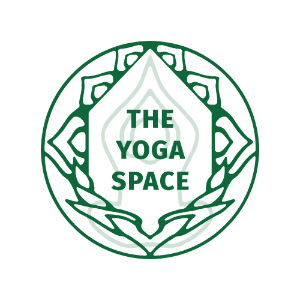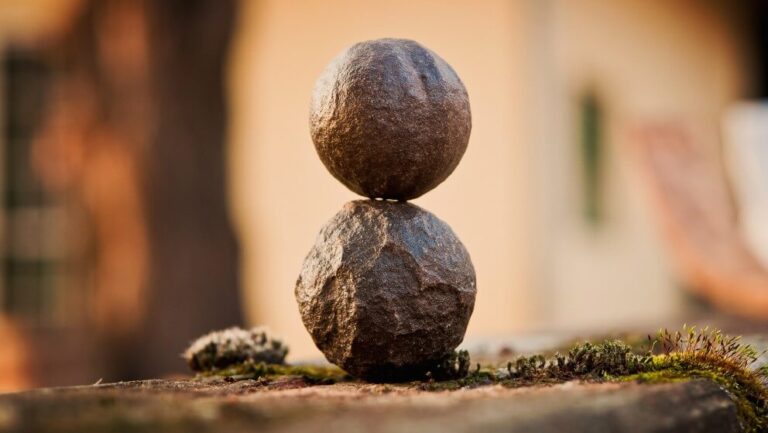In the choice to let go of your known way of being, the whole world is revealed to your new eyes. – Danna Faulds
https://www.everyday-mindfulness.org/screw-the-rules-living-mindfully/ – by Sheila Bayliss
Before I discovered mindfulness, I was on a bit of a quest. I was pretty sure I was failing at life, while everyone else was succeeding. I devoured self-help books, searching for The Answer that would guarantee my happiness. Following the advice, whether it was cutting out wheat or saying daily affirmations, gave me something to cling to. Some sort of measuring stick to hold myself up to, an alluring identity that could be mine, if only I followed the rules properly.
These days, I still love to find inspiration from a trusted teacher or a favourite blogger. But I’ve noticed that if I’m trying to follow someone else’s ‘shoulds’, my ability to trust my own instincts can get compromised. It’s as if I can get blinded to what’s actually happening in my own experience. And then I can end up placing expectations on myself that are limiting. But as I’ve become more mindful, I’ve also learned to rely on an inner wisdom that frees me from these limits.
The more I develop my mindfulness practice, the easier it gets to catch myself veering off the path that’s right for me, and take wise action. Sometimes this ‘clear seeing’ can happen in a flash. I experienced one of these moments a couple of years ago which set life on a very different – and wonderful – course. At the time, I was newly self-employed and believed that to be successful, I should set some pretty ambitious goals and spend every spare moment glued to my smartphone to achieve them. I assumed that what the self-employment experts were saying had worked for them was therefore right for me aswell. I got drawn into a cycle of always-striving-for-more because I thought this was just what you had to do if you worked for yourself. But something wasn’t fitting well. I’d gone to a place that felt quite tight and driven, caught up in striving for a vision of success that wasn’t my own. Something was nagging at me, and it wasn’t until we took a short family break that it hit me.
I remember the exact moment with crystal clarity. I was watching my son run around a deserted Welsh beach with joyful abandon, and I was feeling so spacious in body and mind. Within that spaciousness arose a new idea. What if it was ok to still put lots of energy into being a mum (even though he’s no longer a baby), and to slow things down with work? What’s the rush? What had been unsettling me was that my chasing after a certain kind of success – one defined by others, not me – was eroding what mattered most to me about being a parent: I was finding it harder to be as present to my son as I’d like. I was missing out on family downtime and felt like I always had half an eye on my social media. Some of the ‘rules’ I’d been trying to follow were about achieving results, whereas mindfulness is about being in process. With clear awareness, I could see how my goal-orientated mindset was constantly pulling me into the future and killing my ability to appreciate what I already had, right there in the present.
This moment marked a significant shift in my mindset, and since then my life has aligned more and more with what matters most to me. In the ACT approach to mindfulness*, this is known as living a valued life. It means that I’m been able to keep the principles that I want to live by, but throw away the rules that are limiting. As a family, our lifestyle has changed in ways that I’d never have imagined, but that feel completely right for us.
The first big thing that happened was that I slowed down. A lot. I learned how to make purposeful use of technology: leaving my phone on silent, checking my email less often and switching notifications off. This helped me maintain that feeling of spaciousness that I’d touched into on the beach. From that place, I could choose to focus on the projects that I cared about the most deeply: building a modestly-sized mindfulness community in my local area, with a little writing on the side. I’d been pushing for more than this simply because I felt I should. Questioning this seemed radical at the time, because I’d always had quite workaholic tendencies.
It was incredibly liberating to realise how much I could let go of. I felt so much freer to actually live. The simple act of slowing down allowed me to live more mindfully, to embrace ‘just being’ with my family more, and our relationships are much closer as a result. My approach to parenting also changed, letting go of the need for control and allowing each moment to unfold. I became brave enough to take on new challenges that have massively enriched our family life, but would have seemed beyond me before. I began to more fully embrace the mystery of being alive, rather than trying to manage every moment with a spreadsheet.
What kick-started this change was clarifying what my deepest intentions really are, and separating them out from cultural norms and societal expectations. It’s hard to put into words what happened in that moment on the beach because it was a cutting-through of thoughts, shoulds and rules to connect with a direct, non-conceptual knowing underneath all of that. I can only describe it as a strong feeling of rightness in my heart and body. Meditation teacher Jack Kornfield describes this as making contact with ‘the one who knows’ that we all have inside us. In an instant, some of my old beliefs about work and success had just fallen away, leaving me free to live in a way that is most meaningful for me personally.
This kind of insight is one of the benefits of sustained mindfulness practice. I’ve seen it happen in my students: a moment of ‘oh, its not like that, it’s like this‘, an opening to a new and creative way of being in the world, or a sudden willingness to let go of what we think we know. As the poet Danna Faulds puts it:
“In the choice to let go of your known way of being, the whole world is revealed to your new eyes”.
Looking back, what had I been doing that enabled this moment of insight to arise? Well, no matter how full I made my To-Do list, every day I meditated before doing anything else. I really believed that’s what saved me from potential burnout. Just that daily practice of checking in with myself – connecting deeply with my own experience – had a protective effect. It meant that I was maintaining some contact with my inner wisdom, which saw that I was headed towards misery and pulled me back to my own values.
When we live with mindfulness, we constantly invite our attention back to what’s actually happening right now, in front of our very own eyes. And it’s rarely as black-and-white as some of our beliefs would have it. This grey area (far from being a bland place) is where I find creative responses, being human, courage, intuition and adventure. My own life reflects these qualities more and more as I learn to listen to my own wisdom. But this cannot happen without the committed, ongoing cultivation of mindfulness.
Through repeated meditation, I’ve got to know my own mental patterns and ruts, seen them playing out over and over, and learned how they can limit me. Over time, awareness has increased, allowing unhelpful thinking to get out of the way, and making room for creative choices based on trust. If you choose to develop your meditation, you’ll see that these insights and shifts arise naturally, as a by-product of a regular practice (even if we experience a busy mind or unpleasant feelings during the meditation sessions themselves). Something instinctive arises that we can rely on to guide us in a skillful direction.
If you’re still in the early stages of establishing a sitting practice, you might find that some focused reflection is useful for tuning into your own wisdom. Here are some questions that I find can provide support for increased awareness and mindful living:
Where do I want to put less/more energy?
What rules or ‘shoulds’ am I living by? Are these mine, or someone else’s?
What can I let go of?
What matters most to me in life?
You may need to create a quiet space to reflect on one or two of these, as it’s difficult to hear that wise inner voice amid the din of crazy busy-ness. But you don’t necessarily have to go to a deserted beach to find a flash of insight!
My life now looks absolutely nothing like what my younger self was striving for. Family life is simple, and joyful. My job is far from high-flying, but feels deeply meaningful. I’m less glamorous, but much more comfortable in my own skin. To just be living, rather than living by the rules, feels like being set free. I can breathe. This is the freedom that mindfulness makes possible: throwing away the old script of who we think we are, and finding something infinitely more expansive and creative.
*ACT stands for Acceptance and Commitment Therapy – there’s a book about this on my Top 10 Mindful Reading list.

